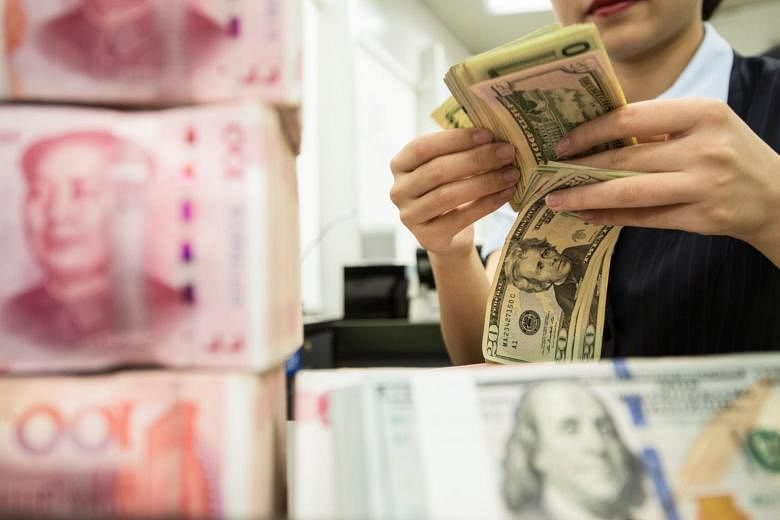Financial markets across Asia were roiled by the US Treasury Department's move to designate China a currency manipulator after it allowed the yuan to slide past seven against the greenback - a move investors fear could open the door to even higher US tariffs on Chinese goods.
That, many analysts say, will deal a severe blow to export-oriented Asia. Meanwhile, China has refused to back down and even said it would stop buying US agricultural products in the face of US threats to slap a 10 per cent tariff on US$300 billion (S$414 billion) worth of Chinese goods.
"This is one big step up the escalation curve... I wouldn't be surprised if Trump eventually imposes a 25 per cent tariff on the remaining US$300 billion of Chinese goods," said Mr S.K. Selvan, director of multi-asset strategies for Lion Global Investors.
"This will be quite devastating because this last batch of US$300 billion is largely toys, electronics, leather goods, and that's where Asia is. We will be quite badly affected if this leads to lower demand. It's not that Asia will pay for the tariffs. The American consumers are the ones paying for it. But imagine if iPhones are 25 per cent more expensive - there will be a demand effect, and Asia will be in the epicentre of this big economic slowdown."
For now, markets have pared back losses after China took steps yesterday to limit weakness in the yuan. Shanghai, Shenzhen and Korea lost more than 1.5 per cent, while Japan, Hong Kong, Taiwan and Jakarta shed less than 1 per cent. Singapore ended 0.75 per cent lower.
Naming China a currency manipulator could open the door for US tariffs to eventually increase to over 25 per cent on Chinese goods, DBS Bank FX strategist Philip Wee said. "Trump's election campaign pledge was to lift import tariffs to 45 per cent on China."
Some Singapore manufacturers have started seeking markets outside China. For Singapore bottled-water maker Wanin Industries, the escalation in trade tensions in the past two months has resulted in a 20 per cent drop in sales to China. And the yuan's depreciation is expected to shave off another 5 per cent to 10 per cent, said Wanin director Eugene Tan.
"Because China is our biggest market, we invested in additional manufacturing lines in Malaysia to cope with increased business from China. The capital outlay was very heavy, and we are still trying to cover those costs. But with the yuan weakening, orders have started to slow down," he said. Wanin has begun looking at markets in Thailand and may start selling to Vietnam by the year end.
For contract manufacturer Watson EP Industries, which has a factory in China, the weak yuan has been a blessing as it pays its workers in yuan and sells audio speakers in US dollars.
But the latest round of tariffs has led to at least one customer asking that Watson shift its production of audio speakers for the US market to Singapore or Malaysia.
"The trade war has affected 20 per cent of our business volume. If the tariffs don't go to 25 per cent, then we may not have to shift production outside of China. But if the trade war persists for another three years, we may have to open factories in Johor Baru or Batam," said Ms Joyce Seow, Watson's executive director.
Her dilemma? "As a business owner, how can I open a factory, spend millions and then wonder what happens to the capacity if the trade war suddenly ends?"


